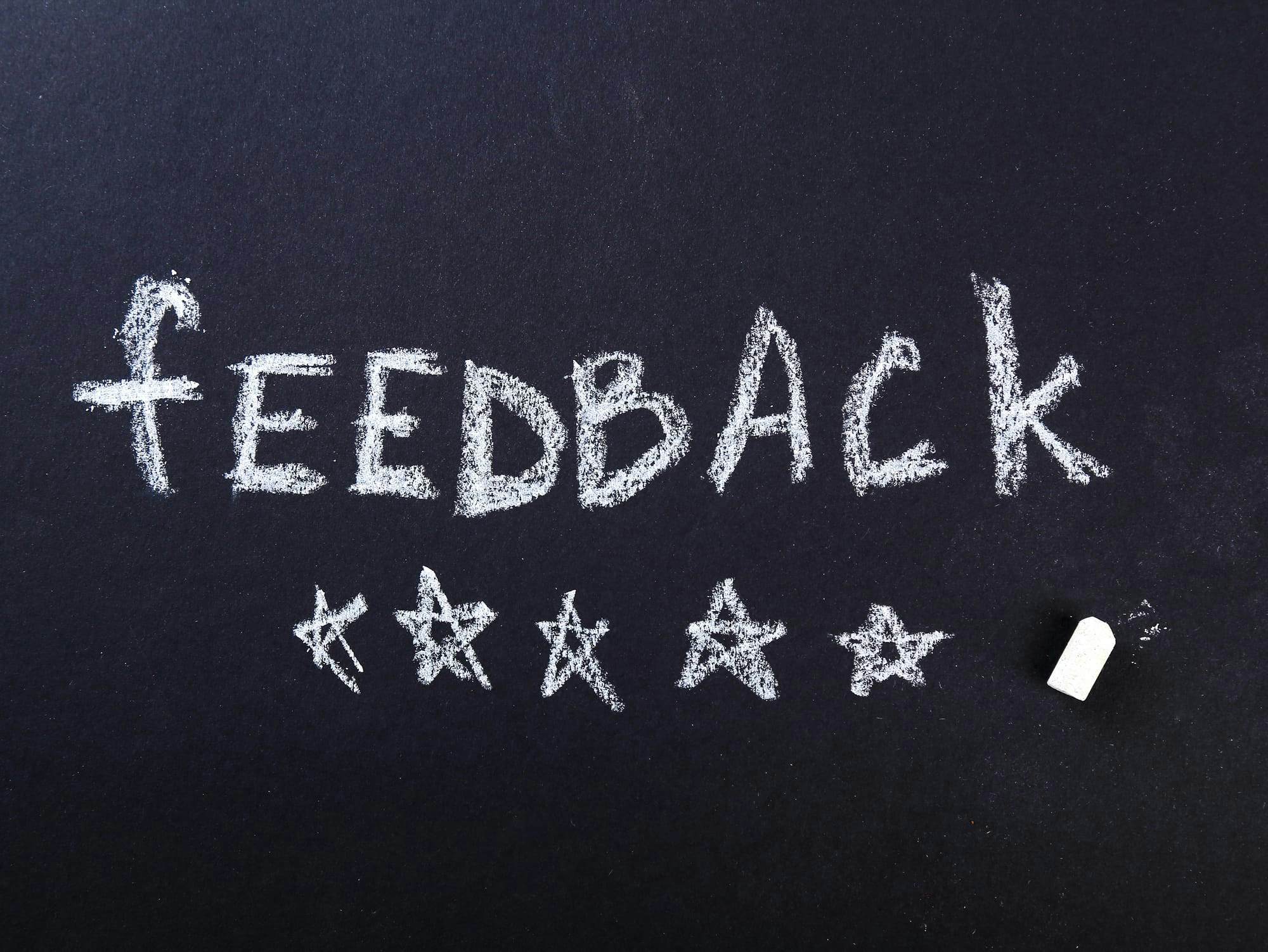Why hold an event if you can’t measure its impact? Whether your goal is to drive brand awareness, boost sales or achieve something unique, selecting the right KPIs to gauge success is a vital step in planning. Gathering feedback is paramount to this process, enabling you to understand your audience’s experience and providing invaluable insights for future events. Here are our essential tips for collecting meaningful, actionable feedback from your audience.
1. Maximising Feedback Response Rates
Even the most sophisticated feedback system won't yield results without active attendee participation. To ensure you capture meaningful insights, it’s crucial to be strategic about timing, incentives, communication and channels.
Timing Is Everything
The window for collecting valuable feedback is short—response rates decline sharply with each passing day post-event. To maximise participation:
- In-event feedback: Gather insights during natural breaks or immediately after individual sessions.
- Post-event surveys: Send within 24 hours of the event ending, with a reminder around the 48-hour mark.
- Follow-up insights: Share key takeaways no later than seven days post-event to close the loop.
Incentivise Thoughtfully
Incentives can boost response rates by 10–15%, but it’s important to choose the right type for your audience:
- Prize draws are effective for consumer-focused events but may lead to lower-quality feedback.
- Donation pledges to relevant charities resonate well with corporate audiences and align with CSR goals.
- Exclusive content access rewards participants and reinforces your event’s value.
- Early access to future events or content encourages engagement and builds loyalty.
Communicate the Value Exchange
Make it clear why providing feedback is worthwhile for attendees:
- Highlight how past feedback influenced current event improvements.
- Be transparent about the time required to complete the survey.
- Promise to share key findings and actions taken as a result.
- Ensure the process is quick, mobile-friendly, and easy to complete.
Take a Multi-Channel Approach
Don’t rely solely on email to gather responses. A broader outreach strategy can increase participation, here's some other channels to utilise:
- Use in-app notifications during the event.
- Place QR codes on printed materials linking directly to feedback forms.
- Send SMS reminders to key stakeholders.
- Reach out personally to VIPs and speakers for more detailed input.
By applying these strategies, you'll not only increase response rates but also gain richer, more representative feedback—uncovering valuable insights that might otherwise be missed.
2. Collect feedback in real-time
At in-person events, feedback can often be informal, gathered through networking sessions or sentiment at the event. It's usually not too difficult to see if there's something people are enjoying and interacting with, and to ask them on the spot how they feel about the event so far. However, it can also be useful to have on-the-spot feedback forms, such as surveys on iPads, to capture real-time sentiment. You could simply ask attendees to tap a facial expression as they leave content sessions to get an indication of how they feel about a particular panel discussion.
For virtual events, real-time feedback is even more critical, as attendees can exit with just a click. Set up a gentle pop-up when attendees try to leave, asking for a brief reason why or what they’d like more of in the future. Additionally, audience polls within virtual platforms can give you instant insight into how well content resonates, enabling you to make on-the-spot adjustments if needed. Take a look at platforms like Mentimeter and SurveyMonkey for real-time online polls.

3. Nail your post-event survey
We’re all familiar with the crucial post-event survey. But how many of us really use it to its maximum potential? In order to get super-accurate results that depict exactly what your attendees thought of your event, you’re best off sending your post-event survey out as soon as possible. This way, the event will still be fresh in their minds (and they’re more likely to answer it!). While sending it out by email is typical, you could also experiment with making it available as attendees leave your event – for example in a pop-up as attendees go to exit.
Don’t forget that your attendees won’t be as familiar with your content or speakers as you are. So, include images where you can to jog their memories (and catch their attention!).
Plus, make sure your survey works seamlessly on mobile. There’s nothing worse than your attendees quitting your survey halfway through because the experience was clunky – not only will this result in less feedback, but it will also leave a sour taste in their mouths which is the last thing you want after a successful event!
Finally, give attendees the option to answer your questions anonymously. Depending on their relationship with your brand, it may well be that they won’t feel confident answering completely honestly if they know that you can link their responses to their name.

4. Hone your questions
You need your survey to be comprehensive, but you also want to avoid being overly detailed because everyone is busy and time is at a premium. So, how do you pick the right questions? Well, this is where you go back to your event objectives and KPIs. Then, choose questions that will help you to assess whether or not you met your goals. At the same time, remember to check whether or not the event matched your attendees’ expectations. If their expectations were different from yours, that’s most likely a marketing problem that you’ll need to address next time.
Including some Net Promoter Score (NPS) questions will work as a good benchmark for attendee satisfaction. This includes questions like ‘How likely are you to recommend this event to a friend or colleague?’
Remember to avoid leading questions like ‘Which talk most excited you?’ After all, your attendees might not have found any of the talks exciting! Instead, try to ask neutral questions such as ‘How would you rate the talks you attended?’

5. Use the right tools
Using the right tools to collect event feedback is essential for gaining insights that drive continuous improvement and attendee satisfaction. Tech-enabled feedback tools streamline real-time and post-event data collection, enabling you to capture audience sentiment, identify trends and spot areas for enhancement. From live polls to sentiment analysis, the right tools ensure feedback is both actionable and insightful, empowering you to elevate your events and meet attendee expectations more effectively. Here are some of our top picks:
Slido
Perfect for live polls, Q&As and instant feedback during sessions. It integrates easily with event platforms and lets you gather real-time audience insights.
Mentimeter
A tool for engaging attendees through interactive polls, quizzes, and word clouds. It provides immediate data visualisation for a snapshot of audience sentiment.
Typeform
With an AI-powered interface, Typeform creates conversational surveys that feel more engaging and lead to higher response rates. It’s great for post-event feedback collection.
HubSpot Feedback Surveys
Hubspot offers a range of feedback options, including NPS, CES (Customer Effort Score), and custom surveys. It provides valuable insights and integrates seamlessly with CRM data.
SurveyMonkey
A trusted tool for pre-and post-event feedback collection, SurveyMonkey’s AI features help analyse large amounts of data, identifying common themes and valuable insights.
6. Get feedback from everyone
Don’t forget that your attendees aren’t the only ones who can provide you with actionable feedback. Depending on the nature of your event, there might also be speakers, sponsors, exhibitors and others directly involved who could provide you with valuable insights.
Of course, their experience, expectations and goals are likely to be very different from your attendees’. And, as we’ve discussed, time is at a premium. So, rather than simply sending out the same post-event survey to everyone, we’d recommend creating specific surveys for each group involved. That way, you can ask the questions that are likely to have the most impact and get genuinely useful feedback.

7. Analyse and action
There’s no point in collecting feedback if it just sits there unused. The real key is knowing what to do with it! Firstly, make sure that you relate it back to your goals. Remember that when it comes to measuring whether or not you achieved them, this often isn’t black and white. It’s normal to have somewhat achieved your goals but to have some room for improvement. Look carefully at the feedback in this case and use it to analyse what worked and what didn’t. Then, put together a plan for how you could better achieve your goals next time.
At the same time, don’t forget that feedback isn’t the only thing you’ll be measuring. Hopefully, you selected some important KPIs to track alongside collecting feedback. Use the feedback to support your other measurements, and to help fill in any gaps.
For instance, if you’ve been tracking drop-off points at a virtual event, you might find that you had a high number of attendees leave the event five minutes into a particular session. This is useful to know, but there’s not much you can do about it without finding out why. By matching this up with the feedback collected, hopefully, you’ll be able to find out whether there was something wrong with the session itself, or whether you inadvertently scheduled it to clash with the latest episode of Strictly Come Dancing!

Feedback is one of the most useful means of measuring your event's success both during and after an event. But there are some key things you can do to make sure you’re making the most of it. Once you’ve polished your feedback process and learned how to let it inform your future events, the sky’s the limit!
For support on boosting your events and scaling your event programmes, get in touch with the team at Hire Space 360, the ultimate support for event planners.
Transform your event planning
Streamline feedback and drive results with Hire Space 360's tools for insights and post-event analysis.
Find out more
Author

Gemma Baker
Gemma loves all things social media and keeps busy by creating lots of Hire Space content. When she’s not creating content, you'll find her shopping, exploring or at the gym!


